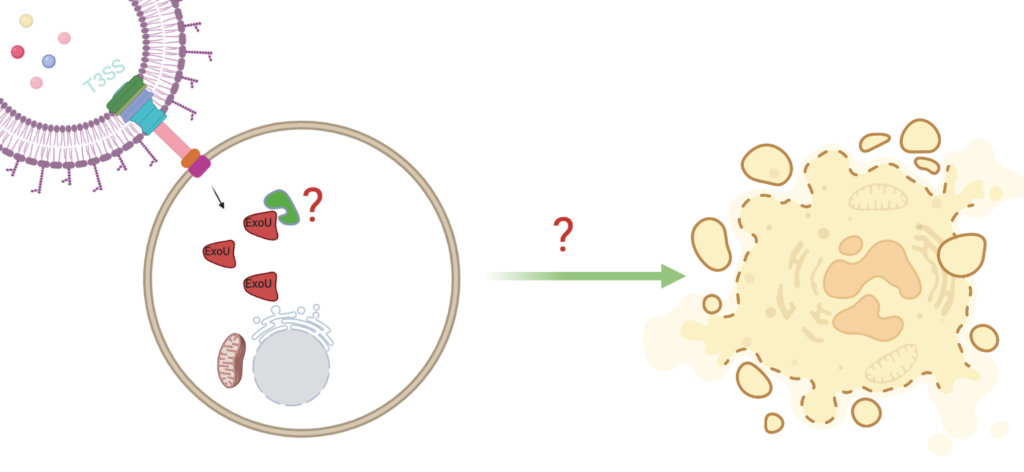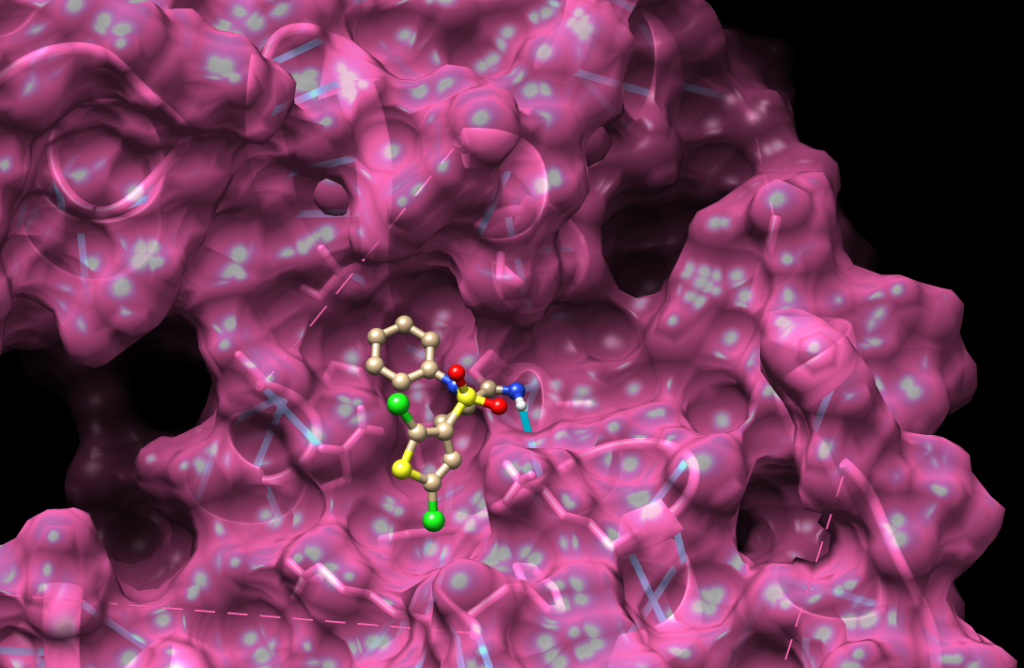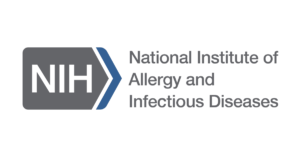Our current research projects:
1. Investigate the mechanisms of host cell death caused by Pseudomonas aeruginosa
ExoU phospholipase activity becomes activated when it is delivered into the host cells. ExoU-mediated cytotoxicity is different from other cell death mechanisms such as apoptosis. However, what host proteins and pathway involved in host cell death mediated by ExoU are not understood. Our current effort includes using CRISPR/cas9 technology to uncover host factors involved in the host response to P.aeruginosa and its effector ExoU and characterizing these host susceptibility factors, which may be drug targets to strengthen the host response.

2. Develop inhibitors of the Type III secretion system
The type III secretion system is a bacterial appendage required for virulence in many important pathogens, including P. aeruginosa, but is largely absent from commensals, making it an attractive target for antimicrobials. We discovered a group of cyclic peptomers that is a broad spectrum T3SS injectisome inhibitor of P. aeruginosa, Salmonella enterica Typhimurium, Y. pseudotuberculosis, Y. enterocolitica and Chlamydia trachomatis. Our current efforts include studying their mechanism of action and further development.

3. Develop inhibitors of bacterial phospholipases
P. aeruginosa manipulates the host by injecting its T3SS substrates into host cells. The effector ExoU has the strongest impact on host pathology of all Pseudomonas T3SS effector proteins. ExoU has phospholipase A2 activity that disrupts the host cell membrane and promotes inflammation when ExoU is activated inside the host cell. Delaying expression of ExoU can increase the survival of infected mice. ExoU homologs have been found and validated in a number of bacterial pathogens. Our current efforts include SAR study of ExoU inhibitors identified from molecular docking.

Funding
We are grateful for funding by the NIH and Virginia Tech

